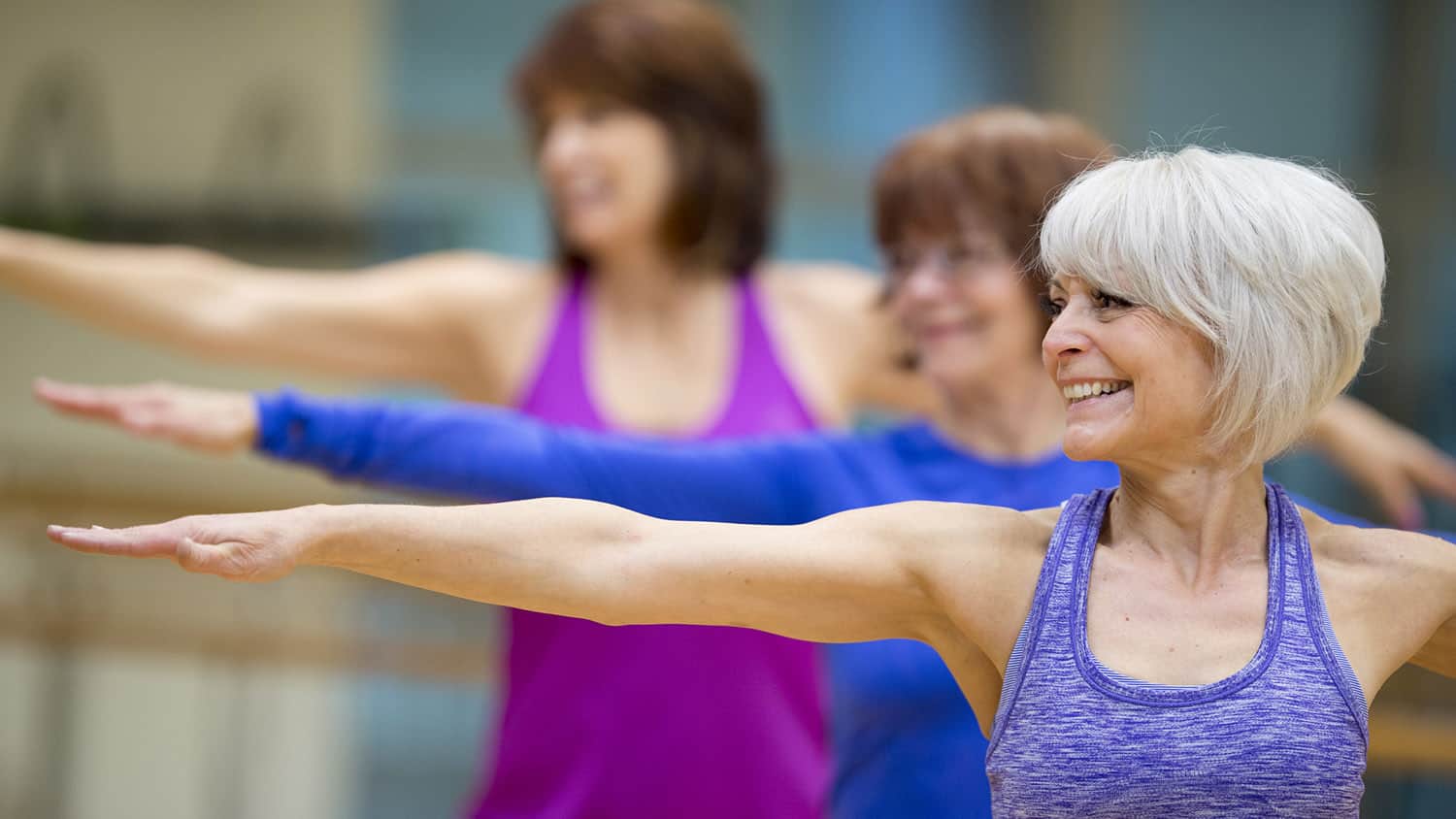
Is Healthy Aging an Issue of Mind Over Matter?
What does healthy aging mean? What does it include? How do we make sure we are doing what we can to age healthy? Join us in conversation with geriatrician Dr. Bill Thomas who has some interesting strategies to share. Enjoy the show!
Margaret Manning:
Today we are going to be inspired by someone I’ve wanted to meet for a very long time. Dr. Bill Thomas is a medical doctor—he’s a geriatrician. He is also a speaker, an author and an innovator. He calls himself a revolutionary, because he is changing the way that we think about ageing and elder care. Welcome, Dr. Bill.
Bill Thomas:
Thanks for having me, Margaret.
Margaret:
I am so excited to have you here. I’ve been following the roadshows that you do across the United States. I think you visited 30 some cities this year, on what you call ‘the changing ageing tour.’
Bill:
That’s right.
Margaret:
You just get up on stage and give this fascinating talk about getting older and how beautiful that is. You also talk about how things are changing in our world.
Bill:
Yes, it’s a pro-ageing festival.
Margaret:
I’d love to come to one of those. The lucky women in our community who live in the United States could learn more about upcoming events at Dr. Bill’s website.
Bill:
You bet.
Margaret:
I’d like us to chat a little about healthy living which is a big priority for Sixty and Me. We know that along with having some money and a sense of independence, health is pretty much what you need in your 60s.
As a geriatrician, what would you say are the four or five healthy aging tips that will help us to be fit and healthy?
Bill:
The great news is that the things that are the most important are really simple. I use the mnemonic MESH to remind me every day what matters most. MESH means Move, Eat, Sleep and Heal.
It’s important to realize that the human body is made to move, and it will keep moving to the degree that we use it. Many people fail to recognize that your 60-, 70-, 80- etc.-year-old future self is relying on you today.
Your future 15-years-older self is depending on you to move your body, today. It’s not so much a matter of exercising or working out, it’s a matter of moving.
There are several very simple things you can do to keep yourself moving. Number one, try the best you can to get 10 000 steps each day. Having a counter—a bracelet or something—is helpful to keep you on track.
Margaret:
For those of us with an iPhone or Android phone, there are healthy heart apps that also count your steps. So instead of buying a bracelet or another gadget, you can simply use your phone.
Bill:
Absolutely. Number two is posture, and it is super important. To test your posture, go to a wall in your house and stand up against the wall. Your buttocks, your shoulders and the back of your head should all touch the wall.
If you’re standing there and your shoulders are hunched forward and your head is forward that’s not the posture that you want. You’ve got to get the shoulders back and the head up. Buttocks, shoulders and the back of the head must be aligned with the wall.
You will be amazed with the results. Practice this, and you will find yourself walking down the street holding a better posture. Of course, our grandmothers told us this.
Margaret:
We weren’t listening back then.
Bill:
No, we were not listening. But they were right.
Margaret:
That is why Yoga and Pilates are such good exercises. Even if you don’t do anything more than sitting in the lotus position, it gets your back straight.
Bill:
I totally agree. Thai Chi, Yoga, Pilates these are great. Notice that you don’t have to go to the gym and lift weights. Those bodyweight exercises aren’t so great.
One other quick thing you want to do is work on your balance. Your 77-year-old self would very much like for you to work on your balance because balance is a set of skills that can be learned.
When you find yourself standing in the kitchen, or standing in line, pick up one foot just an inch or two off the floor. Stand on one foot while you are doing things. After fifteen to twenty seconds, put that foot down, and pick up the other foot.
Margaret:
This is a good idea.
Bill:
It is. Your body gets used to practicing maintaining balance, which is also movement.
Margaret:
Next is E.
Bill:
The diet advise for a happy old age is to eat a variety of foods—not too much, and mostly plants.
Margaret:
That’s really simple. Mostly plants so, not a lot of sugar or salt.
Bill:
I was have a hard time keeping up with what is good and bad in food. Basically, your best way to hedge that is to eat a variety of foods, mostly plants.
Whenever it’s possible for you to do this—and I know there are different people with different limitations—prepare food at length and in a leisurely fashion. This is associated with appropriate weight loss and a greater enjoyment of food.
Margaret:
So we should take our time in food preparation. We have got M and E; now what’s next?
Bill:
Sleep.
Margaret:
We talk about sleep a lot. It changes as you get older, doesn’t it?
Bill:
Yes, it most certainly does. Our culture says that when you are 65 you should sleep like a 15-year-old. Actually, that’s not true. You are not supposed to sleep like a 15-year-old. I’d like to offer two simple ideas here.
Number one, there is something called phase advance. As humans get older, the time of day when they like to sleep shifts forward. That is why many older people go to bed earlier than they did when they were younger and rise earlier than they did when they were younger. There is nothing wrong with it.
Number two, older people have more sleep fragmentation than younger people. For older people it isn’t normal to sleep the whole night without waking up.
Margaret:
That’s interesting. People worry about waking up.
Bill:
I know, and because they wake up at night, they come see people like me, asking for a pill to help them sleep. After I look at other potential issues, I tell them that waking up a couple of times during the night is a normal thing for people in our age group.
With sleep, what you really want to pay attention to are sudden shifts and changes in your sleeping pattern. That matters a lot more.
Margaret:
I actually find waking up at night a good thing sometimes. When it happens, I would sit and meditate for a minute, or think about what woke me up. Sometimes I would remember a dream which I had or something else and go, “Oh, I should have remembered that.”
Bill:
You are making a really good point here. You shouldn’t think about these wakeful night time episodes with fear that something is wrong with you. Instead, think of them as little elder interludes that are given to you.
Margaret:
Like a gift.
Bill:
Yes, like a little package of time that is given to you. Let me tell you a very quick Zen story about sleep and waking up in the night.
There was a Zen Buddhist nun who was travelling across the country side. She went to a town, asked for shelter, but was denied. As a result, she went and slept in a grove of cherry trees.
It so happened that it was a full moon. The nun woke in the middle of the night with the full moon above her and the cherry blossoms falling in the light the moon provided.
The story goes on to say that she gave thanks to the people of the village who, by denying her lodging, had given her this tremendous gift of beauty that she was able to partake of. Think about that in terms of your own sleep, and it will change some of your feelings about it.
Margaret:
Actually, I think that’s a great attitude to have in life, in general. When something happens that doesn’t immediately please you, there’s always some kind of secret gift to it.
Okay, so what’s H?
Bill:
H stands for heal. Now, our culture tells us that healing means going back to how things used to be. That is not correct. Healing is going forward and finding your new normal.
If you have lost a breast—or a child or a spouse or a lung—you know that you can’t go back. There is no going back. The truth of our human experience is, we’re expected again and again to move forward to create a new normal which is not the same as the old normal. It will never be the same.
This is not dishonorable, and it’s not dishonoring the old normal. It’s healing, and healing says, “This is how I live now. This is the world I live in now, and it’s different than the world I lived in before. I’m different from who I was before. This is now normal for me, and it’s good.”
The value of this approach is that there are so many people who want to go backwards in time and cannot, and so they remain unhealed, unwhole. People who can move forward can heal. If you’ve got an amputated leg, but accept your new body as your new normal, living your life this way can be very insightful.
Margaret:
That’s a very powerful insight. I wasn’t expecting you to talk about healing this way, but it’s right on that level. I think stress is another level that should be mentioned in this discussion. We started this conversation talking about healthy aging, and you covered topics like food and sleep and movement.
I believe stress is one of the big influencers and inhibitors of healthy aging. Often we stress about losing something, or about a change that affects our lives. It could be a divorce, or a death, and your strategy is a really cool, new way of looking at healing. I knew you were a special doctor with unique powers, thank you.
Bill:
I’m glad to be of help. Let me add a quick word about stress. People should understand that it’s healthy to strive for the Gold locks level of stress in your life.
Older people, in particular those who lived life of very low stress, tend to loose capacity. If you’re not being pulled and pushed in sometimes uncomfortable ways, if you stay completely within a zone of comfort, that zone will get smaller.
Margaret:
Yes, you should take risks every minute of your life in some ways. Complacency is as bad as being stressed. Is there something else you wanted to add?
Bill:
No, we covered the topic.
Margaret:
Wonderful. Thank you for the great advice on healthy aging. I will try to make sure to eat more plants.
Bill:
That would be great.
Margaret:
Thanks, Dr. Bill. I appreciate your time.
Which part of MESH do you think is your weakest point? Can you think of ways you can improve your lifestyle in that category? How about your stress levels – do you have a way of dealing with those? Please join the conversation below!
Tags Healthy Aging






